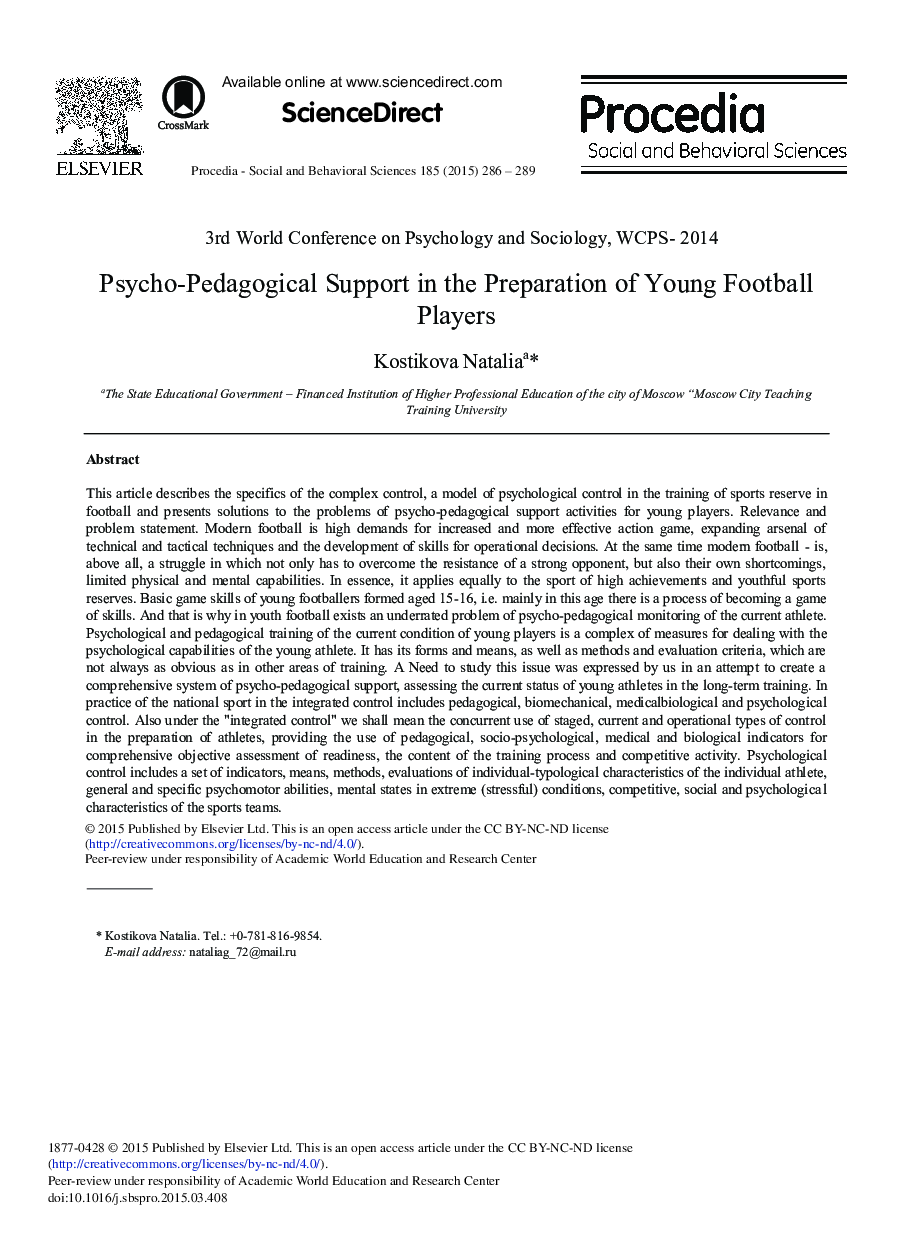| Article ID | Journal | Published Year | Pages | File Type |
|---|---|---|---|---|
| 1111033 | Procedia - Social and Behavioral Sciences | 2015 | 4 Pages |
This article describes the specifics of the complex control, a model of psychological control in the training of sports reserve in football and presents solutions to the problems of psycho-pedagogical support activities for young players. Relevance and problem statement. Modern football is high demands for increased and more effective action game, expanding arsenal of technical and tactical techniques and the development of skills for operational decisions. At the same time modern football - is, above all, a struggle in which not only has to overcome the resistance of a strong opponent, but also their own shortcomings, limited physical and mental capabilities. In essence, it applies equally to the sport of high achievements and youthful sports reserves. Basic game skills of young footballers formed aged 15-16, i.e. mainly in this age there is a process of becoming a game of skills. And that is why in youth football exists an underrated problem of psycho-pedagogical monitoring of the current athlete. Psychological and pedagogical training of the current condition of young players is a complex of measures for dealing with the psychological capabilities of the young athlete. It has its forms and means, as well as methods and evaluation criteria, which are not always as obvious as in other areas of training. A Need to study this issue was expressed by us in an attempt to create a comprehensive system of psycho-pedagogical support, assessing the current status of young athletes in the long-term training. In practice of the national sport in the integrated control includes pedagogical, biomechanical, medicalbiological and psychological control. Also under the “integrated control” we shall mean the concurrent use of staged, current and operational types of control in the preparation of athletes, providing the use of pedagogical, socio-psychological, medical and biological indicators for comprehensive objective assessment of readiness, the content of the training process and competitive activity. Psychological control includes a set of indicators, means, methods, evaluations of individual-typological characteristics of the individual athlete, general and specific psychomotor abilities, mental states in extreme (stressful) conditions, competitive, social and psychological characteristics of the sports teams.
